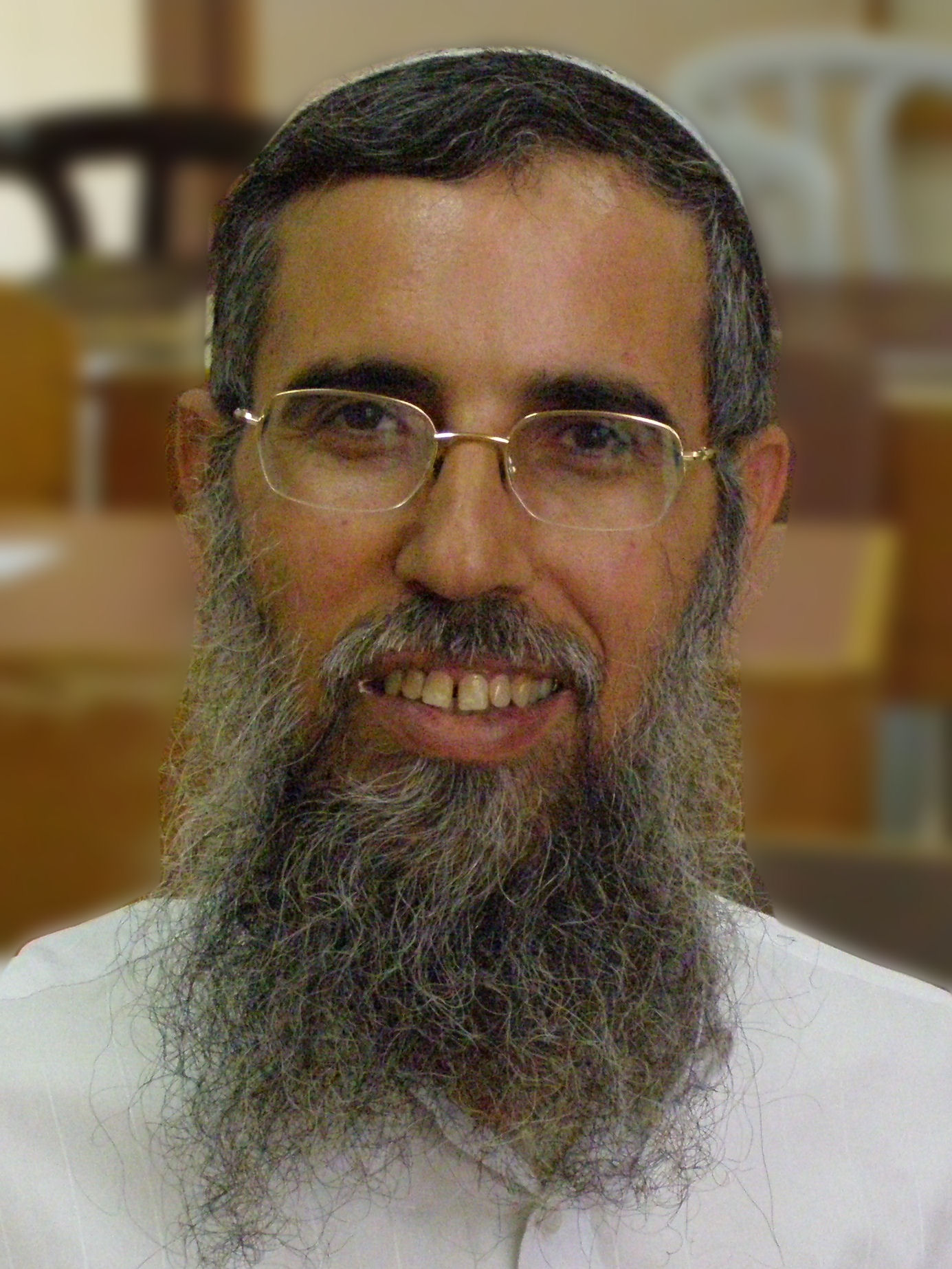Laziness and Wisdom
הרב מרדכי גרינברג
נשיא הישיבה
On Shabbat we will read, "Judges and officers you shall appoint in all your cities." (Devarim 16:18) We normally understand that every country requires some system of law and order. However, in the Midrash we find a strange comment:
This is what Scripture states, "Go to the ant, you lazy one; see her ways and grow wise. Though there is neither officer nor guard nor ruler over her, she prepares her food in the summer and stores up her food in the harvest time." (Mishlei 6:6-8) Why did Shlomo see fit to teach the lazy one from the ant? ... She lives only six months ... and her entire consumption is only a grain and a half of wheat, yet she goes and gathers in the summer all that she finds, wheat and barley and lentils.
The idea is that we, also, should gather whatever we can in this world.
There are two questions here. First, the pasuk begins with laziness and ends with wisdom. Since the pasuk seems to deal with laziness and diligence, it should have ended, "see her ways and grow diligent." Furthermore, the comment of the Midrash seems contradictory, "Judges and officers, etc. This is what Scripture states, 'Go to the ant.'" But the pasuk says that the ant does not have officers, and yet prepares. So how can Midrash associate the pasuk of “Judges and officers” with the ant? Her behavior is just the opposite!
We see that laziness is not a physiological problem, that the person is physically tired or the like, but rather it is an issue of wisdom. To overcome laziness requires wisdom. We know the Mishna in Pirkei Avot, "Who is wise? One who foresees what is coming." Conversely, a person who is submerged in his desires is the opposite of wise, as it says, "The lust of the lazy one will kill him; for his hands refuse to do work." (Mishlei 21:25) Man was created in the image of G-d, and with the breath of G-d became a “nefesh chaya” (living being). What is nefesh chaya? -- The abilities of intelligence and speech. This means not only that man can make computers, whereas animals cannot, but rather that man can run his life based on intelligence, whereas animals operate based on instinct. Man has to evaluate his actions based on where he is heading.
Tehillim (49:11-14) provides describes the fool:
“Though he sees that wise men die, that the foolish and boorish perish together and leave their possessions to others.” (The Chevra Kadisha quips, "In shrouds there are no pockets" -- you can't take anything with you).
“[Nevertheless,] in their imagination their houses are forever, their dwellings for generation after generation.” (People build private houses, thinking that this will be their house forever. Rav Aryeh Levine once commented about a certain wealthy person, when he was lowered into his grave, "How will he adjust to his new place? I won't have such a problem!”)
“But as for man; in glory he shall not repose, he is likened to the silenced animals. This is their way, folly is theirs.” (This is the way of fools. They don't think about the future, that they are destined to die, but instead think that they will endure forever.)
The previous fool eats and drinks, this fool doesn't plan for the future. The purpose of man is to live based on his sechel.
The Kuzari (3:2-5) describes the “chasid” as once who looks after his state and distributes to all its inhabitants their needs in proper measure, not too much and not too little. They reciprocate, and when he needs them, they are willing to help him. (E.g., if there is a war and he needs reserves, they all respond.) The King asks him, “I asked you about the chasid, not the ruler.” The Kuzari answers that the chasid is one who rules over himself, "A master of his passions [is better] than a conqueror of a city." (Mishlei 16:32) The true ruler is the sechel (mind) that knows how to rule over the whole body. A person is divided into three levels. Guf (body), neshama (soul) and nefesh (spirit -- connected to midot) The proper order is that the sechel should be on the top and the guf on the bottom. The Maharal points out that an animal always has his head down, is always seeking food, whereas man keeps his head up. These three aspects of man are represented by three organs, respectively, moach (brain), lev (heart), and kaved (liver) – whose acronym is MeLeKh. When a person acts in this order, if he doesn't solve problems based on instincts, what he wants to do, but rather he follows his sechel what is proper to do -- this person is melech. Therefore, when a person evaluates something, in Hebrew we use the expression, "nimlach beda’ato" This is the image of an ideal person.
The Ibn Ezra in Parshat Naso writes that the word nazir is from word nezer – crown, as it says, “The crown of G-d is upon his head.” (Bamidbar 6:7) The common person is a slave to his desires, whereas the king is one who is free from the binds of his desires, whose moach runs him. Laziness is not a problem of weakness in body or muscle, but rather in sechel. Does he see the future? Does he know what he has to do in life? When young children are lazy about getting out of bed for shul –people tell them, “If you had a trip would you get out of bed?” Yes, because then he is full of enthusiasm. However, if someone doesn't understand the importance of what he is doing, he acts slowly. This idea is so important that the Shulchan Aruch opens with it:
“Shiviti Hashem lenegdi tamid” (I have set Hashem before me always). This is an important principle in the Torah ... for a person’s actions when he is alone in his own house are not the same as his actions when he is before a great king ... Immediately upon awakening from his sleep he should rise with alacrity for the service of his Creator.
A person who senses that he is always before Hashem acts with alacrity, because he understands what he rising for. The Kuzari writes the same idea there, that one who deals with his needs and desires properly will be able to run his body with zerizut.
What do we learn from the ant? The ant foresees the future, knows that food is not available in the winter, and therefore prepares in the summer. Since she understands the importance of hoarding in the summer, she acts diligently, even though no one is standing over her. We tell the lazy person, “Look at the ant, who lives the present based on the future; who has self-discipline; who doesn't have a Mashgiach.” A child doesn't work without someone standing over him giving reward or punishment.
The Michtav Me’Eliyahu (Strive for Truth) provides a beautiful parable of a primitive person who saved the king. As a reward, the king gives him a sack and tells him to gather whatever he can from his treasure house, and carry it home. The person figures, why work so hard for so many hours, since no one is there watching over him. First he took a nap, then he collected a few little things. When he returns home, he boasts how “outwitted” the “ungrateful” king. A more worldly person explained to him the value of the metal and stones in the treasure house, and then he understood how he squandered a tremendous opportunity. We are like this fool; we look right and left to see if the Mashgiach is watching. We think, “I fooled them," but in the end -- what is in our sack?
That is what it says, "Judges and officers you shall appoint over you -- every person must establish a king over himself – “Appoint a king over you.” (Devarim 17:15) This is what we see from the ant, that you should put an officer over you just like ant -- with self-discipline, and not with an external overseer.
The Midrash (Devarim Rabbah 8:7) poignantly illustrates the lazy person:
Shlomo said seven things about the lazy person, and what Moshe said is greater than them all. How?
They said to the lazy one, “Your Rebbe is in the main city; go and learn Torah from him.” He responds to them and says, “I am afraid of the lion on the road” ... as it says, “A lazy person says, ‘There is a young lion on the path.’” (Mishlei 26:13)They said to him, “Your Rebbe is in the city; get up and go to him.” He said to them, “I am afraid that there may be a lion in the streets,” as it says, “...a lion between the streets.”They said to him, “He lives next door to you.” He said to them, “But the lion is outside,” as it says, “A lazy person says, ‘There is a lion outside.’” (Mishlei 22:13)They said to him, “[You Rebbe] is in the house.” He responded to them, “And if I go and find the door locked, I have to come back.”They said to him, “It is open” ... as it says, “The door turns on its hinges, and a lazy person on his bed.”
In the end, when he doesn’t know what to respond, he says to them, “Whether the door is open or locked, I want to sleep a little more ... as it says, “How long will you sleep, O lazy one.” (Mishlei 6:9)
In the end, the lazy one concedes the truth, that everything until now was excuses.
“The lazy one buries his hand in the dish; he is too weary to return it to his mouth.” Which is the seventh, “In the winter the lazy one will not plow; he will desire [a crop] in the harvest time, but it will not be there.” (Mishlei 20:4)
This is a metaphor for one who does not learn Torah when young, and will lack it later in life when he wants it. Take advantage of the time you spend in Yeshiva, when room and food are available. Later in life you will want to learn with your children – but it will be too late.
What Moshe says is greater than them all, “The matter is very near to you -- in you mouth and your heart – to perform it.” (Devarim 30:14) Take it out from your mouth!
The lazy person is too lazy even for that!
Bottom line, what is important is that everyone can work around responsibilities, but the person has to know that this is not self-discipline. You do not need an overseer on top of you. When you get older it is harder to learn.
To move from high school to Yeshiva is not merely from 12th to 13th grade. It means to move from a regimented system of bells and classes and grades to one of self-discipline. Each talmid is responsible for his own learning. This can be very hard. Talmidim enter the Yeshiva with great expectation; they think that in short time they will become a great talmid chacham. They are right that we must think this way; we need to rise above our littleness. We must aspire for great things, but must also be prepared for disappointments. After the week, when he finds that he has difficulty learning the Tosfot and the R. Akiva Eiger, this can cause a crisis. The difficulties encountered lead some people to crisis, whereas others use them as a push. You have to be aware of this, “Torah is acquired through affliction.” The same is true for Eretz Yisrael, especially for those who come from overseas and are far from home.
Remember this! Here you enter into a realm of self-discipline. The adjustment may be difficult, but you need to keep working. The wise person foresees what is coming, and knows the value of Torah, of building oneself.
קוד השיעור: 4031
(Opening Sicha, Elul 5762)
לשליחת שאלה או הארה בנוגע לשיעור:

.jpg)


.jpg)

